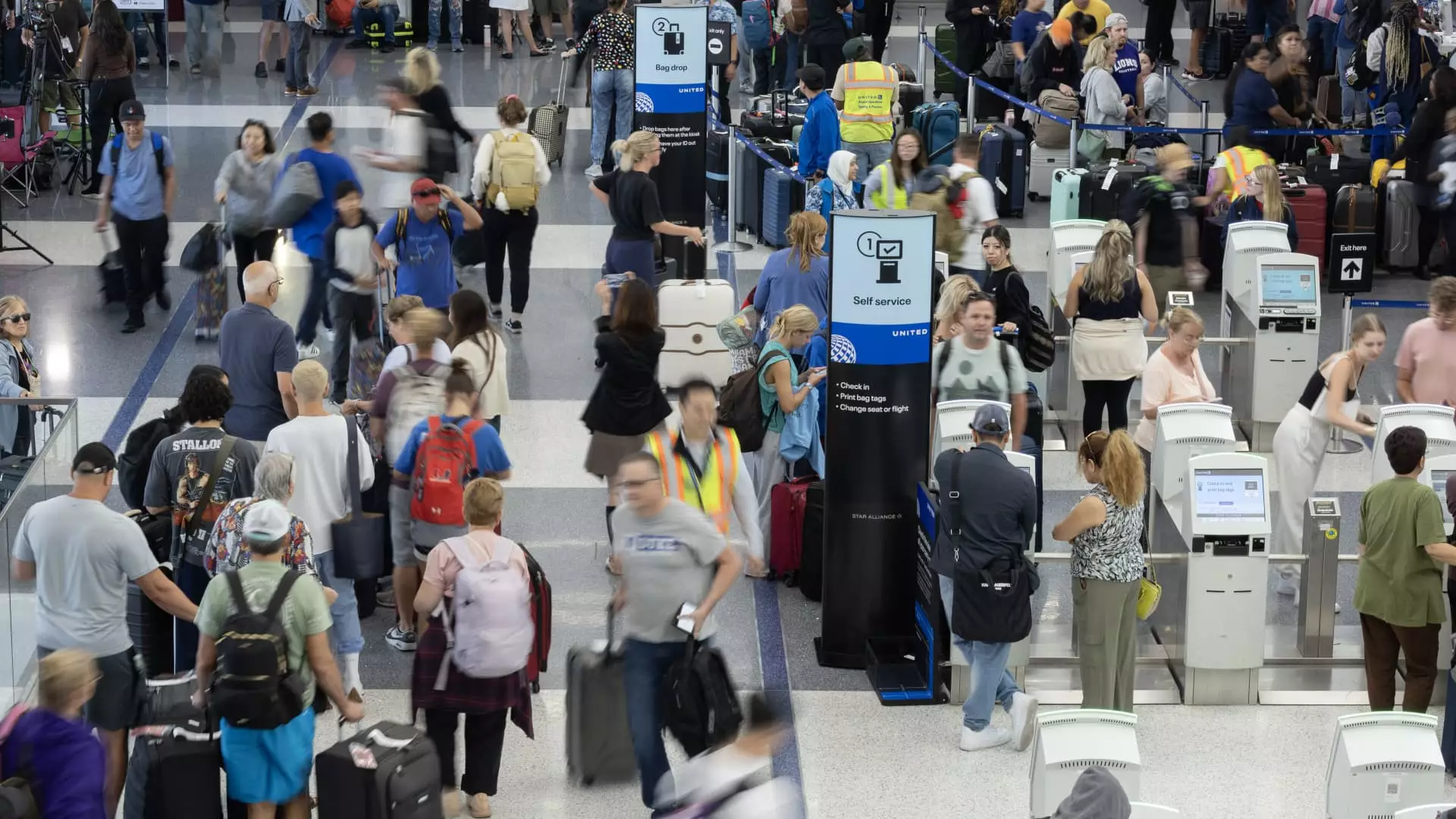Following a global IT outage that wreaked havoc on airports and various industries, airlines have been working diligently to recover from the chaos that ensued. On Saturday, flight cancellations and delays showed signs of improvement as compared to the previous day. While more than 1,200 flights were canceled globally, with over 900 of them in the United States on Saturday, the numbers were significantly lower than the staggering 5,000 flights canceled worldwide on Friday. Additionally, over 12,000 U.S. flights experienced delays due to the disruptions caused by the IT outage.
The impact of the IT outage on airlines was likened to severe weather events such as winter storms or tropical cyclones. However, what set this incident apart was the unexpected nature of the disruption. Unlike weather-related challenges that airlines can often anticipate and prepare for, the IT outage caught them off guard, leaving them scrambling to manage the situation amidst an impending summer weekend. The lack of preparation time compounded the difficulties faced by airlines in accommodating customers and ensuring smooth operations.
The root cause of the major outage was attributed to a software update from CrowdStrike that went awry, resulting in a widespread disruption of Microsoft systems used by businesses globally. In response to the crisis, airlines mobilized their teams worldwide to work tirelessly in restoring operations and assisting affected customers. United Airlines’ Chief Operating Officer, Toby Enqvist, expressed pride in the efforts of their global teams who worked around the clock to address the aftermath of what was described as the most disruptive technology outage in history. Despite having to cancel and delay a significant number of flights, airlines aimed to return to near-normal operations by Saturday.
Efforts to recover from the IT outage were evident in the decreasing percentage of flight cancellations by major airlines. United Airlines managed to reduce its mainline flight cancellations from 22% on Friday to 7% on Saturday. Similarly, Delta Air Lines saw an improvement from canceling 31% of its flights on Friday to 10% on Saturday. In a bid to support affected customers, airlines waived fare differences and fees to alleviate the inconvenience caused by the disruption.
The unforeseen global IT outage had far-reaching implications on air travel, leading to widespread flight cancellations and delays. The incident highlighted the vulnerability of the airline industry to unexpected disruptions and underscored the importance of preparedness and swift response in mitigating the impact on customers and operations. As airlines continue to recover from the chaos caused by the IT outage, the focus remains on restoring normalcy and ensuring the seamless travel experience for passengers.

Leave a Reply